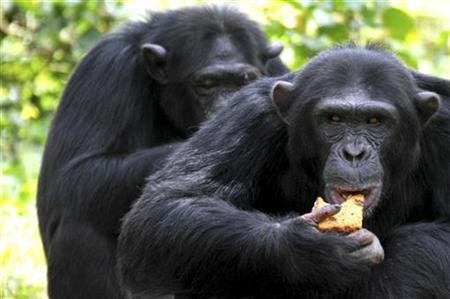Captive chimps are now classified as "endangered" under the Endangered Species Act to match that status of their wild counterparts. Federal wildlife officials said both captive and wild chimps will get the same protections.
The United States Fish and Wildlife Service elevated the status of captive chimpanzees as endangered on June 12, Friday. Before the rule goes into effect on Sept. 14, it will be published in the Federal Register on June 16.
In a statement, U.S. Fish and Wildlife Service director Dan Ashe said, "Extending captive chimpanzees the protections afforded their endangered cousins in the wild will ensure humane treatment and restrict commercial activities under the Endangered Species Act."
The agency also said the new rules will prohibit certain activities involving chimps without a permit, including the animals' import and export into and out of the U.S. Permits will be issued for the scientific activities that benefit the chimps.
For private owners of chimps, a permit is not required to keep the animals. Without a permit, on the other hand, the chimpanzees can neither be sold nor transported across state lines for commercial purposes.
Wildlife groups estimated that there are 170,000 to 300,000 chimps currently left in the wild in Africa while there are around a million 50 years ago and the decrease in their populations are attributed to destruction of hunting, disease and habitat.
In the U.S., there are more than 2,000 captive chimps including not only those at zoos but also those in the entertainment industry and in biomedical labs, according to Project ChimpCARE.



























